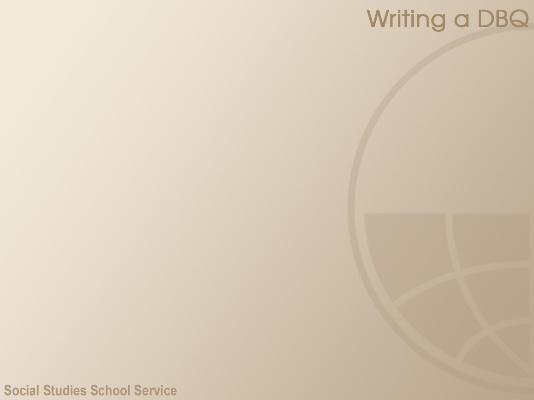





MAJOR CONCEPT
P of V
NEED
DOC

PAT
CON
C
O
A


Let’s look
at the documents one at a time.
Number,
region, and major concept
Pattern or consequence?
Complete
each document,
separated by a line.
separated by a line.
Your
Table